HISTORY
HISTORY
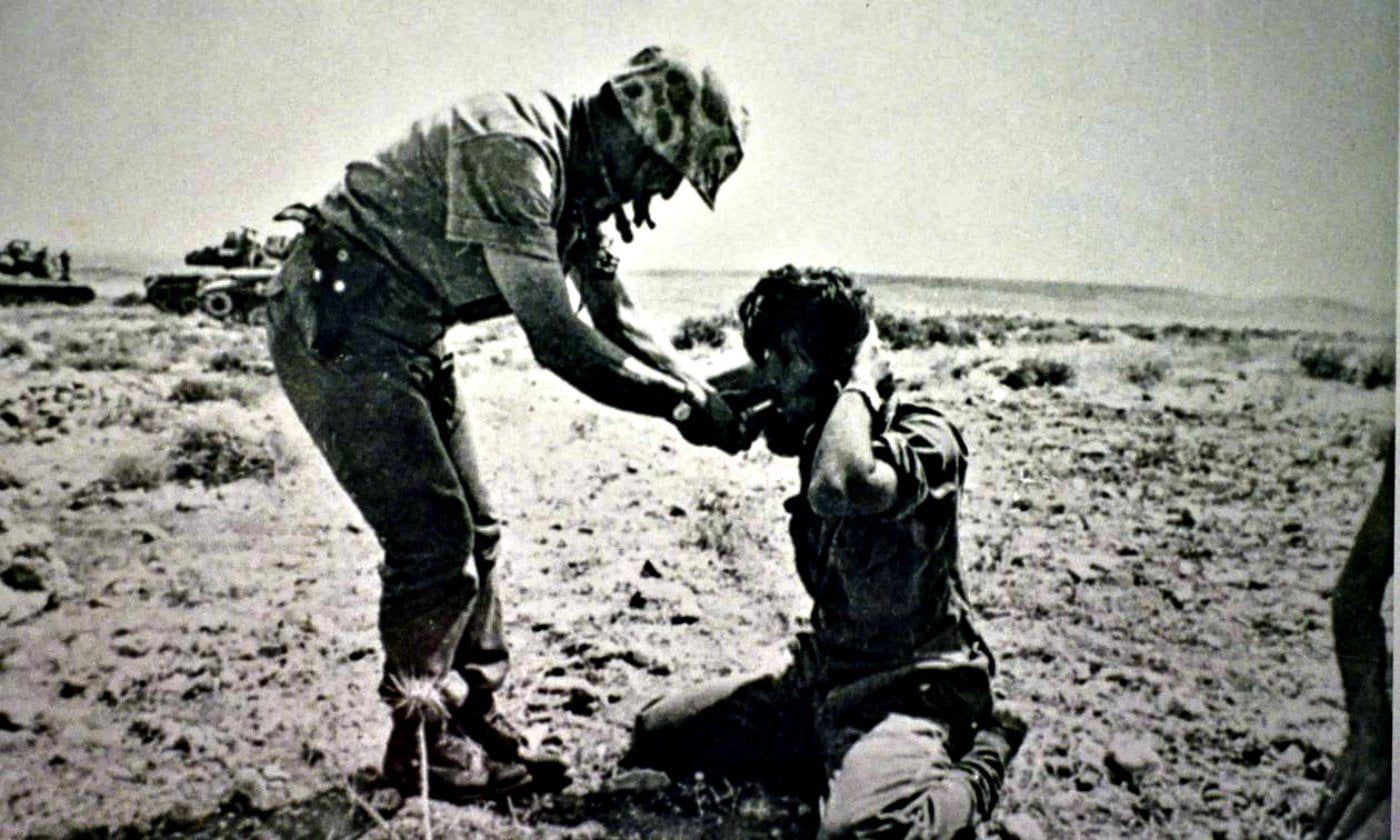
Cyprus remembers and honors all those who defended their homeland against the Turkish invader in 1974.
The sirens sounded today, at 05.30 in the morning, marking the 46th anniversary of the Turkish invasion in Cyprus. As has been the case for the last 45 years, at this time the Turkish army landed on the shores of Kyrenia, five days after the treacherous coup.
Thousands have died and hundreds are missing following the Cypriot tragedy. The country remains divided. To date, efforts to reunite it into a bicommunal bizonal federation have not yet ended, due to unacceptable Turkish demands.
Today, in all the free cities of Cyprus, remembrance and honor celebrations are organized for the fallen and prayers for the fate of the missing of the Cypriot tragedy.
At 08:30 in the morning, in the presence of the acting President of the Republic Dimitris Syllouris, a memorial service took place at the Tomb of Makedonitissa with the political and state leadership paying tribute to the fallen in defence of the Republic. Greece was represented by the Minister of National Defence of Greece, Nikolaos Panagiotopoulos, and the Deputy Chairman of the Standing Committee on European Affairs of the Greek Parliament, Dimitris Karidis.
At 10:00 the annual formal memorial service for those who fell during the Turkish invasion will be held at the Faneromeni Church.
Also read: 15 July 1974 | Forty-six years since the treacherous coup
The History of the tragedy
On July 19, Archbishop Makarios III addressed the UN Security Council, describing the coup as a junta invasion of Cyprus and the overthrow of its independence, while calling on the Security Council to take all appropriate measures to restore democracy.
Turkish Prime Minister Bulent Ecevit seized the opportunity Ankara has long sought, claiming it was not an invasion, but a “peaceful intervention” aimed at restoring constitutional order in Cyprus, which had been overthrown by a coup against him. Makariou, invaded a day later, on July 20, 1974.
Codenamed “Attila”, the Turkish invasion began at 05:30 on July 20, 1974, with land and air operations. The paratroopers were falling en masse, while the Turkish infantry were landing on the beaches of Kyrenia. A total of about 40,000 men took part under the command of Lieutenant General Nurettin Ersin.
Fierce consultations have begun in Geneva to find a peaceful solution under the auspices of British Foreign Secretary John Callahan. The Greek Cypriot side, represented by Glafkos Clerides, demanded for the first time since 1963 the implementation of the Zurich-London Treaties and the Cypriot Constitution. Turkey refused and made its firm request for a geographical division of the island.
Turkish Foreign Minister Turan Gunes proposed a plan, according to which the Republic of Cyprus would be a bicommunal federal state of several cantons. In this state, the Turkish-Cypriots would control about 34% of the island. Clerides requested a postponement of 36 or 48 hours, to consult the Cabinet. The Turks rejected his request.
While the diplomatic peace talks were going on in Geneva, Turkey did not seem to be achieving a positive outcome. It first withdrew its delegation at 3:30 a.m. on August 14, 1974, and less than 1 1/2 hours later (at 4:35 a.m. on the same day) it proceeded to the second wave of invasion under the code name “Attila 2” that resulted in the occupation of Morphou, Famagusta and Karpasia.
Despite calls from the UN Security Council [Resolution 353 (1974)] and the rapid restoration of constitutional order on the island, Turkey occupied 36.2 per cent of the territory of the Republic of Cyprus and forcibly displaced some 200,000 Greek Cypriots from their homes. Another 20,000 Greek Cypriots, who remained in the occupied territories, were eventually forced to flee their homes and seek refuge in areas controlled by the Cypriot government. As of April 2013, fewer than 328 Greek Cypriots and 109 Maronites were trapped in the occupied territories.
Turkey still deprives displaced Greek-Cypriots of the right to return to their homes and properties. This fact has given rise to appeals to the European Court of Human Rights, which has issued important rulings on the violations of the European Convention by Turkey.
In addition to the economic catastrophe, as a result of the Turkish invasion and the violent displacement of the population, more than 3,000 people were killed, while until the end of June 2018, 846 Greek-Cypriots and 271 Turkish-Cypriots are still missing following the inter-communal battles of 1963-64 and the Turkish invasion of 1974.
Makarios returned to Cyprus in December 1974.
Cyprus, now a member of the EU, remains divided. Continued efforts, under the auspices of the UN, to find a viable solution of a bicommunal bizonal federation have not been fruitful, due to the Turkish side’s insistence on maintaining its invasive rights, anachronistic guarantees and ensuring the presence of the Turkish army on the island.
Source: CNA
Memorial Speech by the Minister of Defence Vassilis Palmas at the annual memorial service for the fallen of the 3rd Company of the 211th Infantry Battalion
The Minister of Defence of the Republic of Cyprus, Mr. Vassilis Palmas, attended the annual commemoration of the fallen of the 3rd…
120 years since the death of Pavlos Melas—The Hero of the Macedonian Struggle—Photos
The Armed Forces honor the memory of the ethnic martyr who gave his life for the liberation of Macedonia…
80 years since the Battle of Rimini – The Brigade that wrote golden pages of history
The “Rimini Brigade” wrote new pages of history for Greece, placing it in the camp of the winners. This success was linked to hope and…
F/A-XX | Awaiting Developments on US Navy’s Sixth-Generation Stealth Fighter Plans
The US Navy is expected to announce this week who will be awarded the “golden contract” to develop its next-generation stealth fighter…
Endeavor Manta | Taiwan’s New USV
Taiwan has introduced its first indigenous unmanned surface vehicle (USV) as part of its efforts to develop asymmetric…
Ukraine | The New Katran VENOM USV Presented
Recently, Ukrainian officials have confirmed the development and combat deployment of a new Ukrainian Unmanned Surface Vehicle…
Palmas | Fake News About the Presidential Aircraft
Regarding the ongoing false and misleading reports published by the daily newspaper Alitheia, and in order to restore the actual…
HCDI | The Programmatic Horizon of Research and Development Projects for 2025
The Hellenic Defence Innovation Center (HCDI) announced its Programmatic Horizon of Research and Development Projects for 2025, which…
RAFNAR Hellas | New Shipyard in Lavrio, Expansion in Keratea, and New 62-Foot Vessel
RAFNAR Hellas has announced the official opening of its new state-of-the-art shipyard and headquarters in Lavrio, along with a…






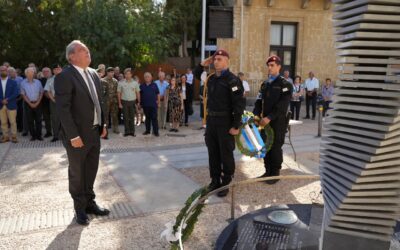
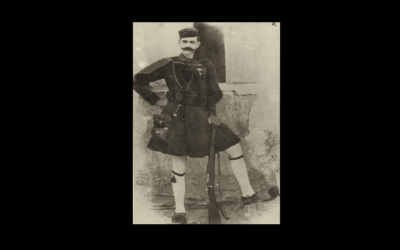
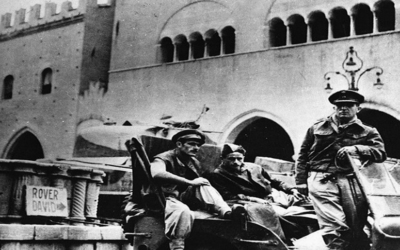

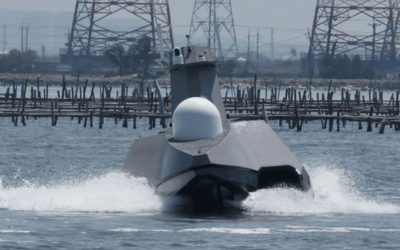

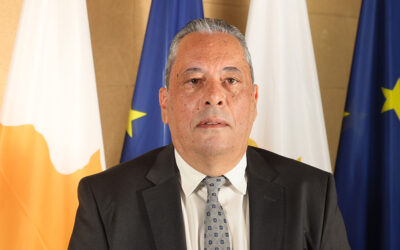


0 Comments